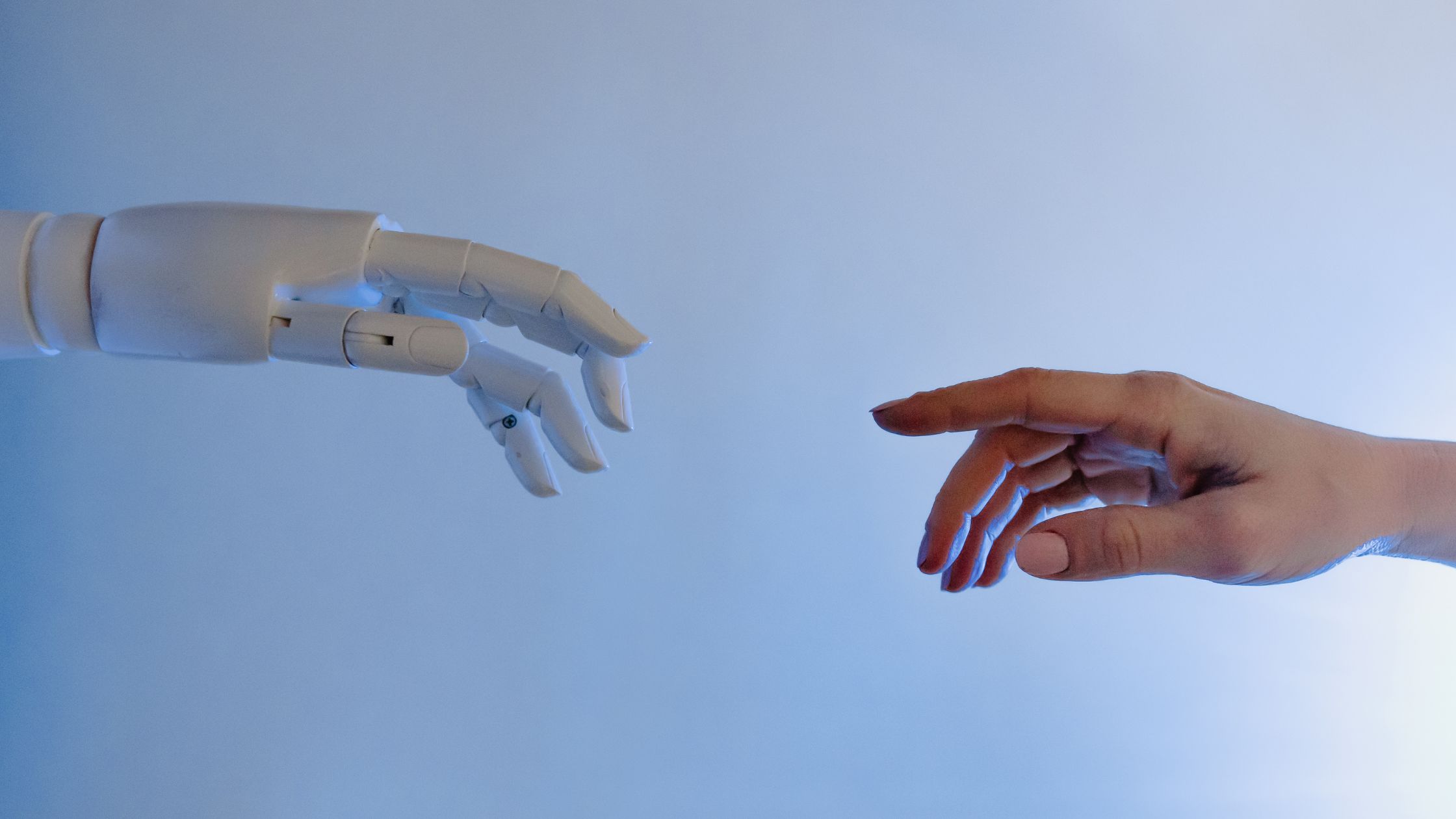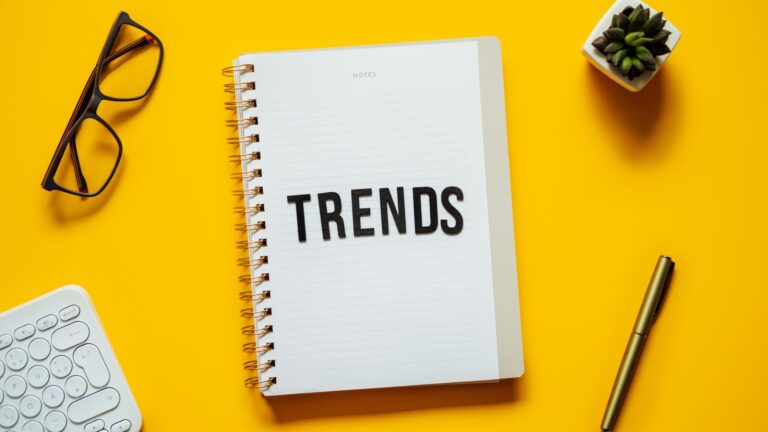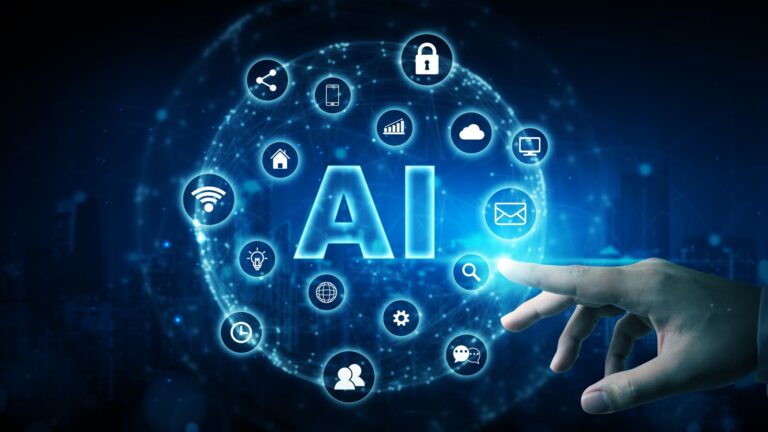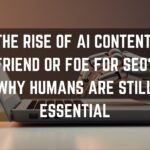FOLLOW US ON:
⚡ The AI Revolution: Smarter, Faster… or Just Sloppier?
AI is the golden promise of the 21st century:
Faster work. Smarter decisions. More free time.
But as AI tools flood our lives — from chatbots writing essays to algorithms suggesting what to eat — one nagging question grows louder:
Are we really getting smarter? Or are we just getting lazier?
If you’ve outsourced your last email, business strategy, or even dinner recipe to AI, you’re not alone.
Let’s pull back the curtain and look at the real evidence behind how AI is shaping (and sometimes shrinking) human potential.
🚀 The Smarter Side: How AI Is Enhancing Human Performance
When used right, AI isn’t a crutch. It’s a launchpad.
🧠 1. Amplified Cognitive Power
AI offloads tedious cognitive tasks — like data analysis, research summarization, or proofreading — giving humans more mental space for creativity and strategy.
According to McKinsey’s Future of Work 2025 Report, companies that leverage AI saw a 40% boost in problem-solving speed.
If you’re building strategies or writing content, tools like Jasper or ChatGPT aren’t replacing you. They’re turbocharging your brain.
If you’re wondering how this affects productivity directly, here’s a deeper dive: How to Increase Productivity at Work.
🎨 2. Creativity Unleashed — Not Replaced
Tools like Midjourney, Canva Magic, and Runway AI don’t kill human creativity — they accelerate the messy starting phase.
Instead of staring at a blank screen, creators now have instant drafts, design ideas, and frameworks to refine and improve.
AI acts like a brainstorming partner — but the final call is still yours.
Case study:
Leading brands in 2025 now use AI-generated mockups to pitch ideas internally faster, but final campaigns are still human-designed.
📚 3. Instant Learning at Scale
Remember when learning a new skill took months of slogging through books and YouTube?
Today, AI tutors like Duolingo Max or Khan Academy AI Assistants offer adaptive learning paths, tailoring content based on your mistakes, speed, and learning style.
You’re no longer limited by traditional education models.
If you’re willing to stay active in your learning process, AI can make you a knowledge sponge.
😬 The Lazier Side: Where AI Might Be Dulling Our Edges
But let’s not pretend it’s all sunshine.
When people lean too hard on AI, mental decay creeps in.
1. The Rise of “Passive Thinking”
Studies out of Stanford University’s HAI Lab show that overreliance on AI outputs lowers independent critical thinking scores by up to 18%.
In other words:
The more you blindly trust AI answers without questioning them…
The worse your real-world problem-solving skills get.
It’s like using a GPS so much that you can’t navigate your own neighborhood anymore.
2. Memory and Retention Drop-Off
The “Google Effect” (also known as digital amnesia) was documented years ago.
Now, AI is amplifying it.
A 2023 study in Nature Human Behavior found that people remembered 29% less information when it was immediately accessible through AI assistants.
If you don’t have to store knowledge, your brain gets worse at building connections between ideas — the foundation of creativity and innovation.
3. Dependency Over Time
It’s not just short-term effects.
Long-term dependency on AI tools for writing, idea generation, and decision-making weakens mental resilience.
When AI fails (and it does — hallucinations, misinformation, biases are still rampant), people struggle to solve problems manually.
In fields like law, medicine, and journalism, this is already a real concern.
If you’re wondering how AI-generated content impacts critical industries, we covered it here: AI-Generated Content: Friend or Foe for SEO?.
2025 Trends: Are We Using AI Smarter or Recklessly?
Here’s what the latest PwC AI Trends Report 2025 says:
| Statistic | Insight |
|---|---|
| 78% of workers use AI tools weekly | Up from 45% in 2023 |
| 62% rely on AI for idea generation | Heavy use across creative industries |
| 29% routinely double-check AI outputs | Meaning 71% often trust results blindly |
Translation:
We’re more efficient, but less cautious. In the race for speed, critical thinking is the first casualty.
Smarter or Lazier? It Comes Down to How You Use It.
- Active AI users (those who verify, tweak, improve AI outputs) are getting smarter, faster, and more creative.
- Passive AI users (those who copy/paste whatever AI spits out) are getting weaker, slower, and more error-prone.
It’s the same as calculators decades ago:
Good for computation. Bad if you forget how to do math.
How to Use AI Without Getting Mentally Weak
If you want to win in the AI era, here’s your new rulebook:
- Always fact-check AI outputs
- Use AI for acceleration, not substitution
- Stay in manual mode for creativity phases
- Mix AI insights with real human research
- Challenge AI assumptions — don’t accept them blindly
Final Verdict: AI Is a Mirror, Not a Savior
AI doesn’t make you smarter or lazier.
AI magnifies who you already are.
- If you’re curious, active, and critical — AI makes you unstoppable.
- If you’re passive, lazy, and distracted — AI accelerates your decay.
The choice isn’t in the tech.
The choice is in you.







